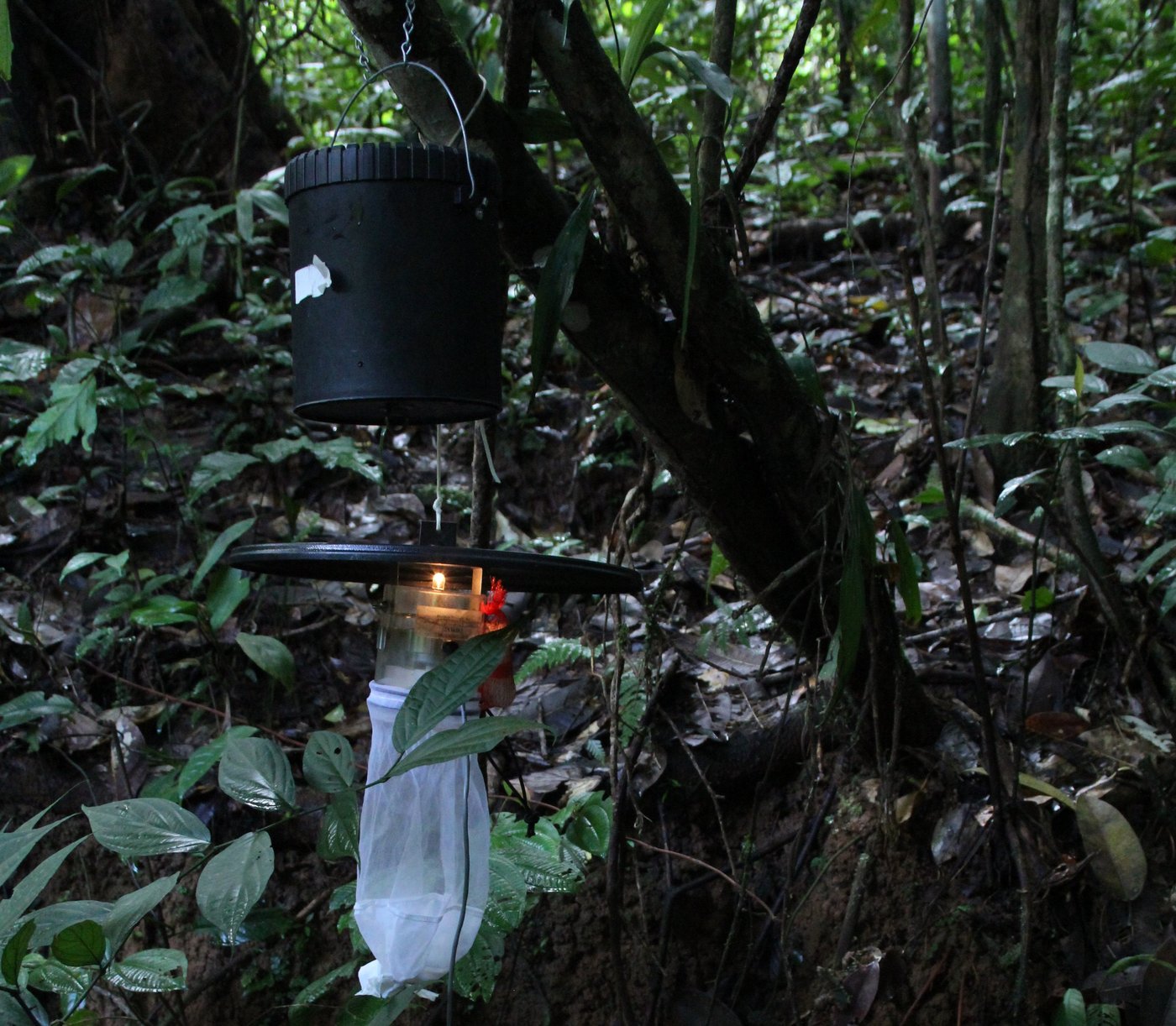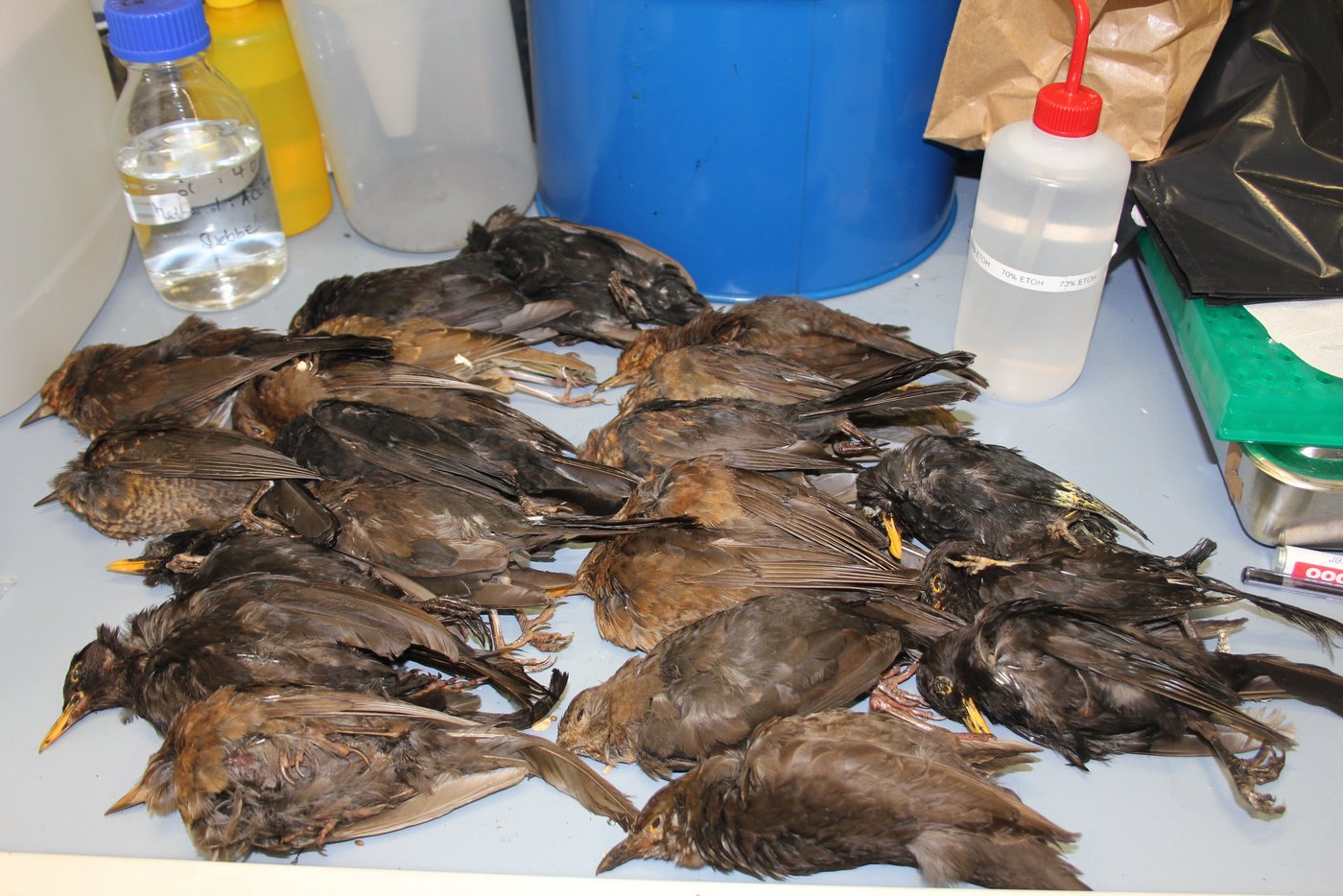Our research projects
The research group "Arbovirus Ecology" studies the spatial-temporal distribution of vectors and associated pathogens. Below you'll find a list of our research projects.
- Vector and arbovirus surveillance
- Risk modelling of spatial-temporal arbovirus transmission
- Ecology and host-feeding patterns of vectors
Vector and arbovirus surveillance
Human and animal diseases caused by arthropod-borne viruses (arboviruses) are of growing importance in many countries of the world. Continuing eco-climatic changes and globalization create suitable conditions for the emergence of arboviruses. Thus, we are involved in different international and national programs to collect and analyse vector and arbovirus data. This provided a solid base to determine the underlying causes of the seasonal fluctuations in arbovirus activity and arbovirus emergence.
Downstream analysis including the detection of new viruses and phylogenetic characterization of viruses are conducted in cooperation with the Virus Discovery, Genomics and Evolution Lab (Dr Dániel Cadar).
Vector collection and screening
We conduct mosquito, sandfly, tick and biting midge collections in different setting in Euoprean and international settings. This data are used 1) to understand the distribution, diversity and phenology of the different vector species and 2) for arbovirus screening.
Dead-bird surveillance
Usutu virus and West Nile virus are threats for human and animal health. In cooperation with the Nature and Biodiversity Consveration Union (NABU) we ask citizens in Germany to sent dead birds to our institute. The samples are screened for arboviruses to understand the spatial-temporal circulation in Germany.


Risk modelling of spatial-temporal arbovirus transmission
The fundamental understanding of vector ecology is the sine qua non to understand the spatial-temporal risk of pathogen transmission.
Especially host-feeding patterns of blood-sucking arthropods shape the transmission cycle of vector-borne patghoesn, which direct insights into the interaction between vectors and hosts. However, there is still a lack of knowledge about the host spectrum for vector species, including mosquitoes, biting midges or sandflies.



![Logo BMFTR [Translate to English:] Logo Bundesministerium fuer Bildung und Forschung](/fileadmin/media/Allgemeines_und_Platzhalter/Logo/BMFTR_de_Web_RGB_gef_durch_01.png)
![Logo Federal Ministry of Food and Agriculture [Translate to English:] Logo Federal Ministry of Food and Agriculture](/fileadmin/media/Allgemeines_und_Platzhalter/Logo/Logo_Federal_Ministry_of_Food_and_Agriculture.jpg)
![[Translate to English:] Logo Biodiversa](/fileadmin/media/Allgemeines_und_Platzhalter/Logo/logo_biodiversa.png)





